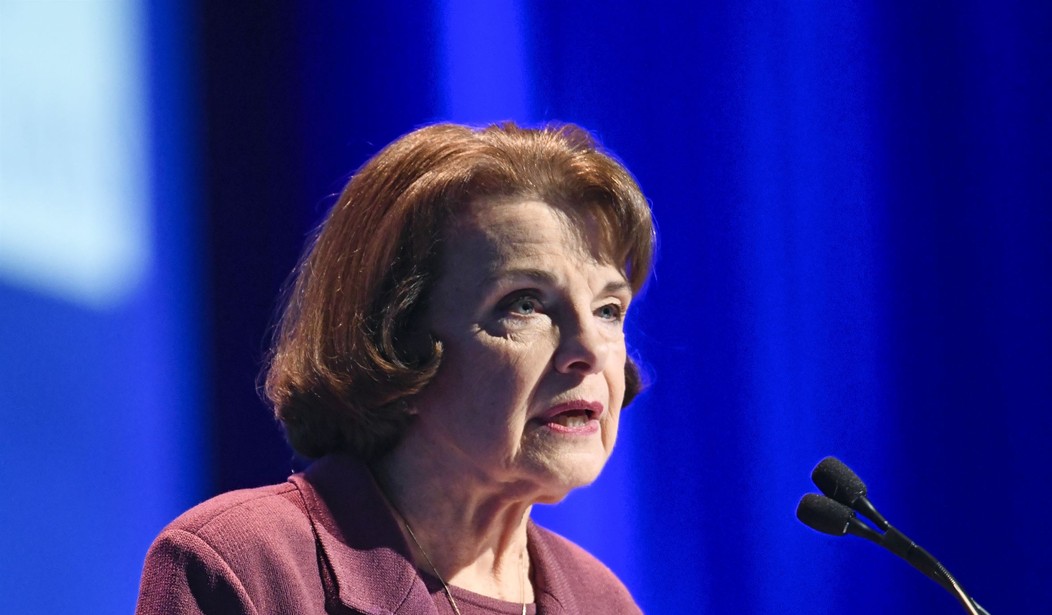Not since James Monroe left the presidency in 1825, 48 years after he fought in the Battle of Princeton, has America had political leadership with careers running so far back in the past. Our current government leaders have political pedigrees going back to the 1970s.
Consider the Senate. Democratic leader Chuck Schumer was first elected to the New York Assembly in 1974. Republican leader Mitch McConnell was elected Jefferson County judge -- the county administrator for Louisville, Ky. -- in 1977.
Consider the House. Democratic leader Nancy Pelosi was elected Northern California Democratic Chairman in 1977. Democratic Whip Steny Hoyer was elected to the Maryland Senate in 1966 and was elected state Senate president in 1975.
And what about California's leading Democrats? Senator Dianne Feinstein was elected to the San Francisco Board of Supervisors in 1970 and became mayor in 1978. Governor Jerry Brown was elected California secretary of state in 1970 and to his first term as governor in 1974.
Technically, President Trump is an exception, never having held public office until 2017. But his public career began in the 1970s, a terrible decade during which New York City's population fell by 823,000. That's when Trump refocused his father's business from the outer boroughs, whose white ethnics were fleeing into Manhattan, where low real estate prices, other people's money and political pull enabled him to flourish in anticipation of an eventual upturn.
When Trump developed his disdain for establishment liberal opinion and penchant for outrageous tabloid-style disparagement thereof he was left as the odd man out in the Reagan/Bush/Clinton high contentment years and a natural fit for post-2007 discontent.
Recommended
Democrats with political roots in the 1970s have a different perspective. They have persevered in office even as political times changed. During the Reagan governorship and presidency, they pursued incremental leftward initiatives, like Henry Waxman's behind-the-scenes Medicaid expansion in the 1980s.
During the Obama presidency, they charged ahead. Even after Republican Scott Brown's special election, victory deprived Democrats of their Senate supermajority and Pelosi pushed for enactment of a necessarily flawed version of Obamacare. She was willing to sacrifice some of her majority to achieve an important policy goal.
In California these days, and nationally, these veteran Democrats have to fend off extremists in their own party. Jerry Brown has been resisting legislative Democrats' extravagant proposals like single payer healthcare. Pelosi has been cautioning Democratic candidates to stop talking about impeachment.
Nonetheless, the impeachment of former President Richard Nixon remains a central memory of these Democrats' formative political years. It has inclined them to believe that the "Russian collusion" issue will result in Trump's removal some time soon. And to hope that it would be followed by Democratic victories as decisive as those of 1974 and 1976.
Donald Trump's experiences give him a different perspective, one firmly anchored in New York City. For him, the 1970s were a time of increasing crime and disorder, of manipulation of rules and regulations by political insiders -- a time when modest-income white ethnics were disparaged and driven by the hundreds of thousands from the city.
In the 1990s, elite opinion was encapsulated when the editorial page of the New York Times relentlessly attacked Mayor Rudy Giuliani's crime-fighting policies and welfare reforms. Liberals dismissed them as fascist and authoritarian, heading toward Hitlerism. Trump, who could see that Giuliani cut violent crime and welfare dependency by more than half, naturally dismissed such criticism, as he does similar statements about his own actions and policies today.
The 1970s saw the emergence of what Democratic pollster Stanley Greenberg calls the coalition of the ascendant -- blacks, Hispanics, feminists, gays, public employee union members. That coalition, much larger today, was enough to give presidential candidate Hillary Clinton a plurality of the popular vote in 2016.
The 1970s also saw the demotion of white working class and ethnic voters as what they had been since the 1930s, the central mainstays and honored heroes of the Democratic Party. Increasingly, Democratic politicians scorn them as racist, sexist and deplorable. Trump identified with them and opposed establishment free trade and immigration policies that he thought were hurting them.
Those voters have largely disappeared from New York City and coastal California. But they were numerous enough in Florida, Pennsylvania, the Midwest and northern Maine to switch 100 electoral votes and elect Trump in 2016.
The result? We're still saddled with the politics and politicians of that slum of a decade, the 1970s.

























Join the conversation as a VIP Member